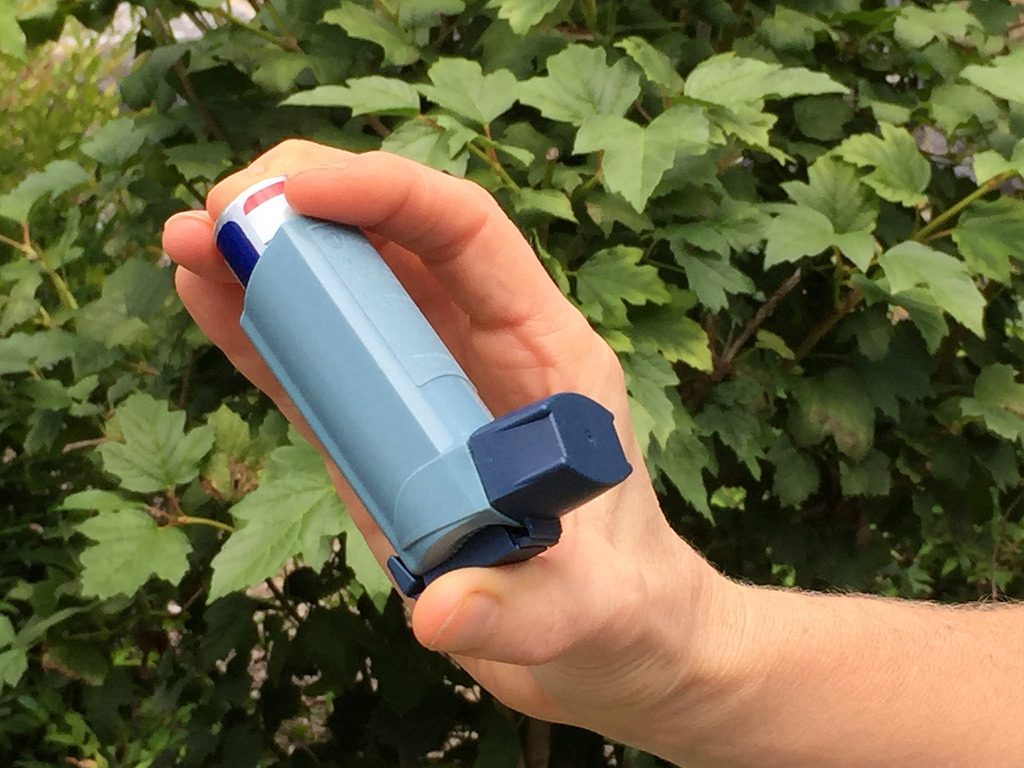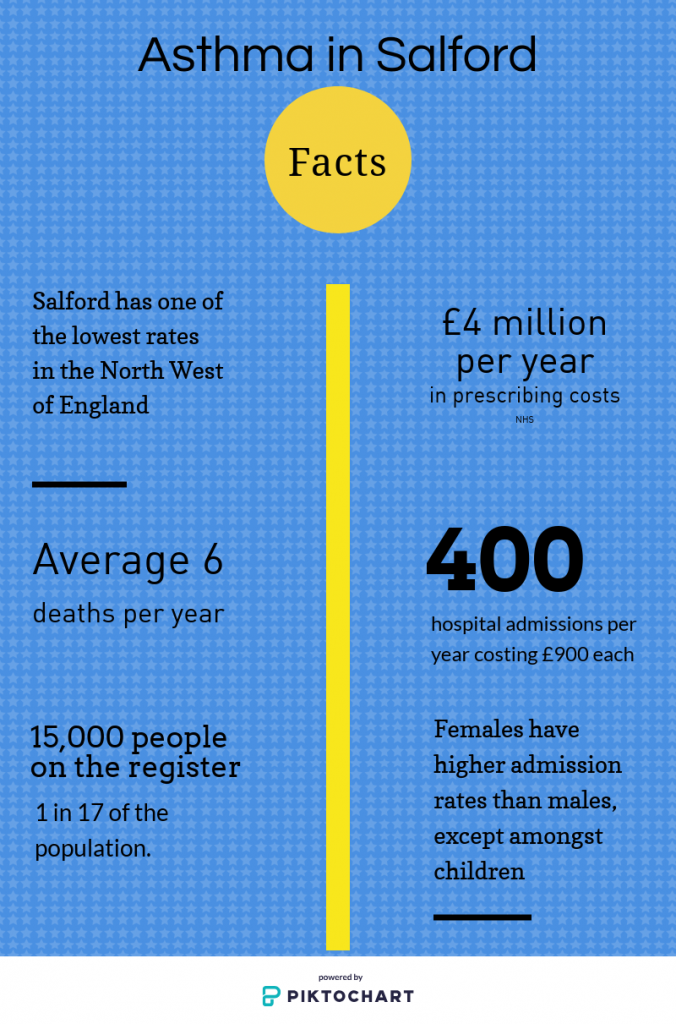
BreathStars and The University of Salford are testing whether singing helps the breathing of children suffering with asthma.
BreathStars is an experimental project originally funded by Salford Clinical Commissioning Group (NHS) and the Big Lottery Fund testing if singing helps the breathing of children with asthma.
The project engages with a professional music therapist to help, with musical advice, help and support from The Hallé, an orchestral band. They also play games and tell stories to improve asthma knowledge in “fun and memorable” ways.
For nine months in 2017/18, between four and six families, each with a child suffering with asthma got together and sang for an hour each week at Little Hulton Library in Salford.
BreathStars experts listened and took advice from community leaders and changed things when they didn’t work.
In Salford alone there are 15,000 people receiving treatment for asthma.
Salford Medical Center said: “Asthma is a very common condition which can start as a child or as an adult, in some cases where children are diagnosed with Asthma the symptoms may disappear as they get older.
“It is important if your child has Asthma to bring them for their annual review with the nurse.”

Breathstars asked The University of Salford to produce an independent report on their work.
The report said:
• It was quite hard to recruit and retain busy families.
• Families enjoyed it so much that they sometimes forgot that it was about asthma.
• Children, siblings and parents noticed that children’s asthma was better controlled: they were using reliever inhalers less, they coughed less and slept better.
• Families noticed improvements in behaviour, confidence, self-esteem and mood in their children.
• Brothers and sisters without asthma got to understand asthma better and were more likely to help and support their siblings.
• Families saw the potential for children to learn how to help themselves and others with asthma in the community.
According to the report by Dr Tony Long and Louise Bawden (The University of Salford) the project has:
“Had impacts on families, such as two children acknowledged that their sibling with asthma used to keep them awake or disturbed their sleep sometimes because of coughing, but this was less common since joining the choir.
“They felt less tired as a result.
“Two mothers who were interviewed reported having more time to spend on their other children since the child with asthma seemed to require less attention.”
Heather Henry, founder of BreathStars said, “I invented BreathStars because I was a child who really struggled with asthma and it affected my confidence for years. Asthma deaths in the UK remain static at 1200 a year despite improvements in treatment.
“The National Review of Asthma Deaths in 2014 told us that adults and children still don’t always understand their treatments, the signs of deterioration and what to do and also don’t seek check ups annually.
“Singing is fun and social solutions can be less stigmatising for people. The evidence for singing so far for adults with chronic lung disease is looking positive but there is little known about singing and asthma in children, so BreathStars is a way to test it out.
“Alongside the singing, we do asthma education, but not in a clinical way which can be boring for kids, we use stories, songs, games and crafts so children listen and remember more.
“Now we are working with a whole primary school St Paul’s Peel C of E school in Little Hulton. Their aim here is to have children help each other with asthma, because it is becoming more common, so almost everyone knows someone with it.
“If all children know that the Big Bad Wolf needs to take his preventer inhaler ‘twice a day every day even when he’s well’ in order to blow the piggies’ house down, then they will encourage each other to remember to take it.”
Can singing help breathing in children with asthma? Our story so far.. https://t.co/4imMZrxjMP @upsalford @heatherhenry4 @AmandaDavey15 @CEOSalfordCVS @asthmauk @ARNS_UK @RespNetwork
— BreathStars (@BreathStars) November 17, 2018
BreathStars are now working with a music organisation in Morecambe and a primary school in Salford to further test and develop standard music and asthma education competencies to share with others, using a cascade model: train the trainer.
For more information on the project visit the Unlimited Potential website.
Image credit: Niaid (Flickr)















One Comment